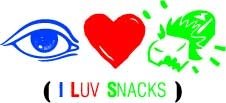
Welcome to Encore. I know what you're saying. What now? What exactly is Encore? I thought our new system was going to be called Millennium?
Yes, our new system is called Millennium. Think of Encore as the face of Millennium. Encore is the interface our patrons will see when they use the online catalog. Millennium is the brain.
Encore consists of a simple (dare I say, Google-like?) search interface, with a lot of user-friendly features that will be familiar to Internet searchers, such as relevancy ranking (hello again, Google), tag clouds (Flickr or Del.icio.us), RSS feeds (familiar to blog readers and podcast listeners), and more. Get out your reading glasses, because here's a (teeny tiny) peek:

Let's take a closer look at some of this. On the left side of the screen are different ways to refine your search (think Amazon for this one). This is officially known as "faceted searching."
You can restrict your search based on where the search words are found. In this case, that means you could search for only those items with the words "harry potter" in the title, or in the subject, or in the author field (perhaps he's writing his memoirs).
Or, you can restrict your search by format. The choices at our example library include "printed matl" (I'd guess that means book or magazine), DVDs, Books on Tape, CD/Record, or Videorecording. The choices at our own library will reflect the formats in our collection, but the concept is the same.
Next, you can restrict your search by collection. In the example, there are several branch choices and a bookmobile. The "collection" choices for our own library might include Cook Park, Evergreen, and Bookmobile.
Language and publication date are among the other "facets" you can use to refine a search with Encore. You can combine the facets, say, to search for DVDs at Evergreen in Spanish from 2006. All of these capabilities mean our patrons will be able to zero in on the materials they want very quickly and easily.
Now let's look at the right-hand side of the screen. Searchers can see popular choices for their search terms (based on circulation figures) at the top of the right-hand column.
Below the popular choices area is what's known as a tag cloud. Each bibliographic entry has a unique tag cloud, with all kinds of tags that may be more or less relevant to that record. You'll notice that the tags are all different sizes. The relative size of a tag is determined by a complicated stew of factors (is it one of the subject headings for that title? how frequently does it appear? and so on...), but the upshot should be that the largest tags are the largest because they're the most relevant.
Encore will eventually include the ability to link to relevant parts of the library's online database collection directly from a patron's search results. Stay tuned for more juicy tidbits on using Encore!
Want to try it for yourself? You can play with Encore at the Scottsdale Public Library or at the Nashville Public Library. Other Encore sites include:
- Deakin University
- Michigan State University
- University of Queensland
- Yale Law School: Lillian Goldman Law Library
- University of Kentucky
Try searching with keywords such as "good to great", "global warming" or "United States economy".




1 comment:
very impressive!!!
Post a Comment